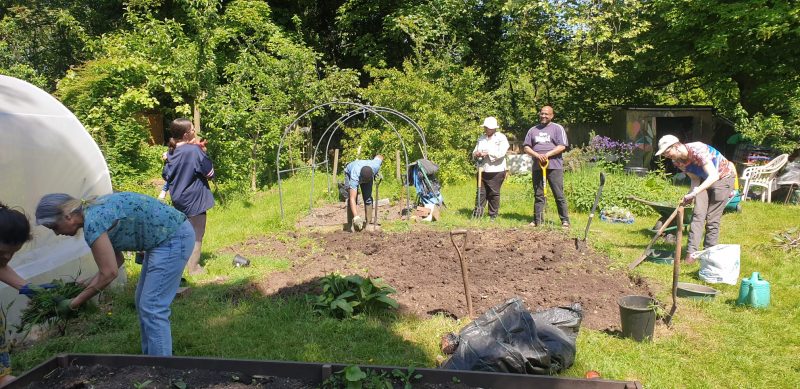
Kushinga Community Garden
The Kushinga Community Garden represents a sanctuary for refugees, asylum seekers, and the local community. This initiative started in May 2011, with Bournville Village Trust permitting the utilization of unused land behind Raddlebarn Road, Birmingham, for cultivation.
The term “Kushinga” in Shona, a Zimbabwean language, conveys the essence of strength and resilience during crises. This name is widely used for cooperative groups across Africa. The project promotes the idea of collaboration in the pursuit of increased resilience through food cultivation.
The potential of food as a catalyst for positive change is acknowledged globally. Through both its growth and consumption, food serves as a unifying factor in various cultures.
The objectives of the Kushinga Community Garden encompass:
- Cultivation of local, exotic, and heirloom crops and plants.
- Skill enhancement in land management, with training to oversee organic plots for personal consumption.
- Fostering planning skills and nurturing hope.
- Establishment of a hospitable and tranquil environment for social interactions, centered around food cultivation and enjoyment. Even those uninterested in gardening are welcomed to participate socially.
- Encouraging social integration and cohesion between resident communities, newcomers, and locals within their own communities.
The Kushinga Community Garden extends its invitation to local residents, as well as individuals from diverse corners of the world, including refugees, migrants, and asylum seekers. This space serves as a meeting point for these groups, fostering connections and community bonds through the cultivation of predominantly local produce. Regular workdays are organized throughout the growing season, reviving the garden’s former allure and providing a space for collective endeavors, socializing, and food cultivation. Joint planning exercises are a regular feature, as efforts are directed toward restoring and enhancing the tranquil retreat garden and rectifying the polytunnel’s self-watering system.
Open days and celebratory events are part of the garden’s outreach strategy, engaging the wider public and volunteers in commemorating accomplishments.
Additionally, the garden strives to exemplify sustainability practices, including the use of biochar rocket stoves for carbon sequestration and soil improvement, self-irrigating systems, and compost toilets. It aims to demonstrate the cultivation of unique edible crops from diverse parts of the world.
The Kushinga garden community is composed of Birmingham locals, encompassing refugees, asylum seekers, and residents from areas like Bournville and Selly Oak. This diverse group includes individuals of varying backgrounds, ages, and expertise levels – from experienced gardeners and farmers to students and beginners. Workdays draw an average of 10-15 volunteers who consistently contribute to maintaining the garden and participating in global food cultivation. The garden serves not only as a space for cultivating and sharing food but also for fostering social connections among its visitors.

Connect with us
@BOSFonline